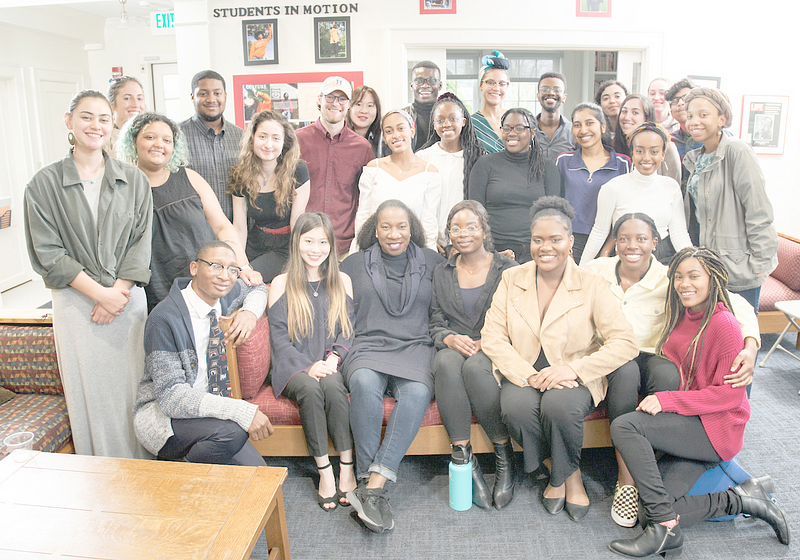
Tarana Burke, an activist and the founder of the #MeToo movement, visited Hamilton on May 2 to meet with students, in addition to giving a speech in the Chapel.
In her speech, Burke talked about coming from a family that always encouraged her to embrace her blackness. She said her grandfather supported Marcus Garvey’s Pan-Africanism and her mother read black feminist literature, which would play a role in Burke’s life work.
“There is not a clear path that lead to #MeToo, but it certainly starts from my mother letting me read Maya Angelou’s book on her experiences of sexual violence, which I had experienced, too,” said Burke. “I felt like there was two of us.”
Burke said that Angelou’s description of herself as a survivor had a profound effect on her.
“I knew she was carrying the same trauma as me,” she said, “and I wondered how that body that holds so much pain could also hold so much joy.”
Burke discussed a few of the many organizations she ran to support other women as a student at Auburn University in Alabama.
Burke said, “My organization Just Be was about creating a space for black and brown girls so that they could literally just be themselves in a safe environment.”
She said another initiative was to teach women the language that would allow them to correctly describe the sexual violence that they have experienced in order to reach out for emotional support.
“You are not the sum total of all the things that happen to you,” she said. “Our work was about creating resources in the local community that it just didn’t have before.”
Turning to the #MeToo movement, Burke said social media was key in increasing its visibility and influence.
“We originally created a MySpace page to advertise our workshops that inform and train people about sexual assault,” she said. “We started having women reach out to us across the country who wanted to get involved in our efforts, they wanted to get informed.”
Burke said the popular recognition of the hashtag #MeToo two years ago came as no surprise given that so many women across the world stay silent about their personal encounters with sexual violence.
“I’m not surprised #MeToo went viral with such a large number of people because sexual violence does not discriminate,” she said.
Despite the effect of #MeToo in popular culture and across various industries, Burke said that the movement is just the beginning of a necessary societal change.
“There has yet to be a cultural shift, we are setting the beginning of a precedent,” she said. “The men who got taken down were systematically protected by people who did not stand up for the survivor, their power and privilege wasn’t checked.”
Burke added that sexual assault, given the immense number of cases both hidden and reported, is a form of oppression.
“We need to talk of sexual violence as a form of oppression. We need to look at the system, not just the men being put into jail,” she said.
Burke concluded by emphasizing that confronting sexual assault must be an issue addressed by all people from a place of shared humanity, saying “politics should not be a part of this discussion — this is not a partisan issue.”

















